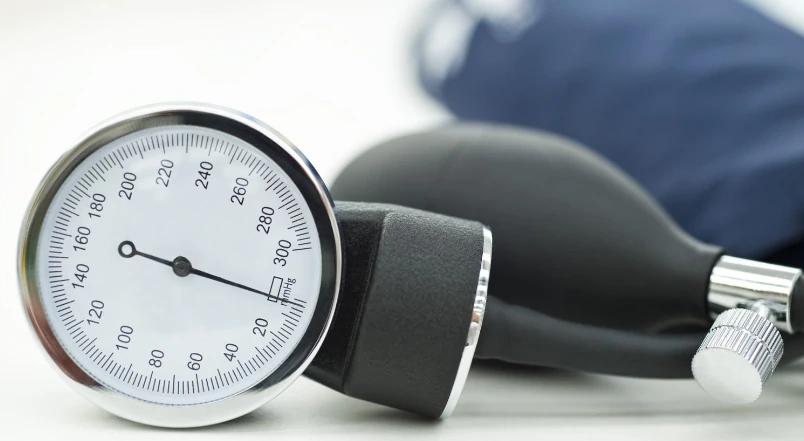Pregnancy and Chilli
Chili pepper in pregnancy: introduction
Can you eat chilli when you are pregnant? Yes of course.
Why do some believe that chili is contraindicated in pregnancy? Above all for the fear that capsaicin , the molecule responsible for the “spicy” reaction, could have serious side effects on the fetus. These are groundless fears even if, as always, pregnant women are advised to respect the criterion of reasonableness.
General information on chili peppers
Chili pepper is a vegetable native to the South American continent, naturalized practically all over the world, used as a spice and more rarely as a side dish . It has a good nutritional content but the portions are generally small and not very significant.
Classification |
Kitchen |
Nutrition |
| Grouped in the Solanaceae botanical family, chillies are spicy species of the Genus Capsicum . The most widespread and used are: C. anuum (from which paprika is produced ), C. chinense (above all the famous varieties Scotch Bonnet, Habanero and related crosses), C. frutescens (from which tabasco is produced), C. pubescens (especially the famous rocoto variety) and C. baccatum (especially the famous Bishop Crown variety). | In Europe, chilli is mainly used as a spice. To be used fresh or dried, in the right doses, this ingredient brilliantly accompanies any type of recipe. Roasted or fried , some fresh peppers can be eaten as a side dish, alone or stuffed, or preserved in oil (eliminating the internal seeds and placenta , which are very rich in capsaicin). | Chili peppers have a moderate caloric intake, mainly supplied by fructose . Contains fibers and plant sterols ; It is free from cholesterol , gluten , lactose and histamine . Usually, it does not significantly affect the energy balance of the diet. It makes use of good vitamin and mineral concentrations ; in particular, it amazes for the content of vitamin C , provitamin A (retinol equivalent), folic acid (which we remember to be very important in pregnancy), vitamin B2, vitamin PP and potassium . Capsaicin, responsible for the spicy taste , can irritate the mucous membranes of the digestive tract ; It is also endowed with vasodilating power. |
Dangers of diet during pregnancy : general information
Pregnancy is a very delicate special physiological condition. During the gestation period, any maternal complications can negatively affect the health of the unborn child; this is why it is always essential to respect some safety rules of the pregnancy diet.
Some of the factors to keep an eye on are:
- Parasitosis , food poisoning , intoxications ( fungal, bacterial toxins ), infections that evolve into septicaemia , etc.
- Chemical or contaminant poisoning (pollutants, pesticides, etc.)
- Nutritional deficiencies that can alter the development of the fetus, anticipate delivery or cause its death
- Nutritional excesses that can have effects similar to deficiencies
- Intake of toxic, poisonous, stimulating or inhibiting factors, generally of vegetable origin, which can favor uterine contractions and anticipate childbirth, compromise fetal development , etc.
Contraindications
Too much chili can be bad!
In Central America, South America and Southeast Asia, pregnant women consume large quantities of chili peppers without apparently having major complications. Could it be the result of an environmental genetic adaptation ? We don’t know, which is why we reiterate to all expectant mothers to respect a certain “safety margin”.
If we exclude the above cases, statistics suggest that excessive portions and frequencies of consumption of hot peppers can have many side effects.
The factors in chili peppers that can interact negatively with the human body are mainly of a nutritional nature; in particular:
- Capsaicin: responsible for the spicy taste
- Provitamins A: responsible for the red color.
Pepper capsaicin in pregnancy
Capsaicin is an alkaloid capable of promoting sensations of “spicyness”, heat-burning and sometimes pain on the mucous membranes and skin . It also exerts a vasodilating effect on arterial and capillary vascular smooth muscle .
Chili pepper, constipation , hemorrhoids and anal fissures
Many argue that the capsaicin in chilli pepper favors the onset and aggravation of discomfort in the hemorrhoidal plexus, located between the anus and the rectum ; however, the evidence in this regard is quite weak. On the other hand, it is plausible that it hypersensitizes the mucous membranes, increasing suffering in the event of pre-existing pathologies, such as the enlargement of the haemorrhoidal plexus or the formation of bleeding fissures . Some subjects suffering from irritable bowel , after eating chili peppers, experience diarrhea while others suffer from constipation .
During pregnancy the body of the pregnant woman undergoes some adaptations; among the most “annoying” we mention the modification of the venous circulation and the alteration of the intestinal transit. This leads to a greater tendency to constipation, inflammation of the haemorrhoidal plexus and the formation of bleeding anal fissures.
In the light of what has been said so far, it would be reasonable to assume that too much chilli pepper could negatively affect the health of the pregnant woman.
Chili pepper and induced labor: is it a hoax?
It is different for the presumed contractile action of capsaicin on the muscles of the uterus .
In the past, mothers who were past their due date were advised to eat lots of hot peppers to ease labor, as capsaicin was believed to induce increased uterine contractions. This assumption, in addition to being unjustified, is also tendentially incorrect. In fact, it seems that spicy foods , in addition to being totally harmless for the muscles of the uterus, can favor the modest release of endorphins with a calming action.
Provitamin A of chilli pepper during pregnancy
Chili pepper is very rich in vitamin A , consisting mainly of retinol equivalents (RAE, mainly carotenoids). These nutrients , essential for maintaining general health, should not, however, be taken in excessive quantities.
Chili pepper, vitamin A and teratogenesis
Daily doses higher than 30 mg of RAE could exert a teratogenic effect on the fetus, causing serious congenital defects such as irreversible malformations. It is therefore advisable not to exceed 3 mg (3000 RAE, i.e. 10,000 IU) of RAE per day.
According to the tables of the National Research Institute for Food and Nutrition, 100 grams of red pepper (the one that contains the most) provides 824 µg of RAE (corresponding to 0.824 mg). This means that, to take any risks, a pregnant woman would have to consume more than 3.5 kg of red pepper per day. A safe portion of red pepper would be 350 g/day.
Conclusions
Chilli during pregnancy: yes or no?
Normal amounts of hot peppers during pregnancy have no medical contraindications . However, it is necessary to consider that capsaicin aggravates the painful symptoms of inflamed hemorrhoids and anal fissures. It can also aggravate irritable bowel syndrome by worsening, in a small percentage of cases, the tendency to constipation and favoring the appearance of hemorrhoids and anal fissures .
Chili pepper does not favor uterine contractions in any way, nor does it anticipate the labor of childbirth.
Chilli is very rich in provitamin A but not to the point of increasing the risk of teratogenesis. It is different for women who take food supplements based on RAE; in this case large quantities of hot pepper could contribute to undesirable reactions on the fetus during pregnancy.




